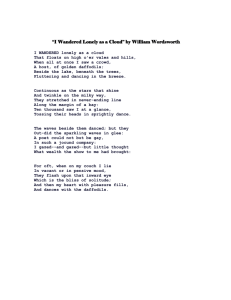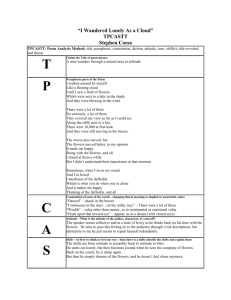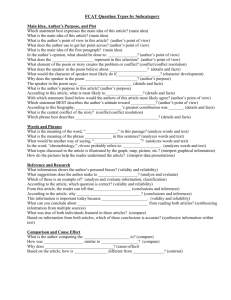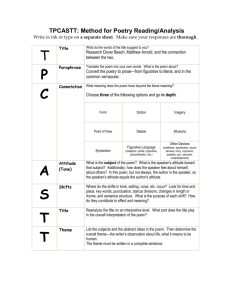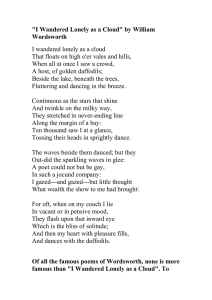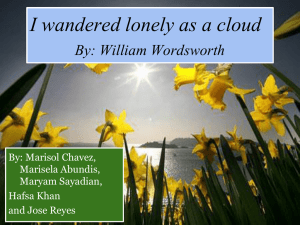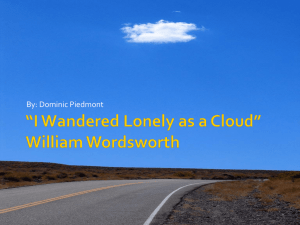TPCASTT Template
advertisement
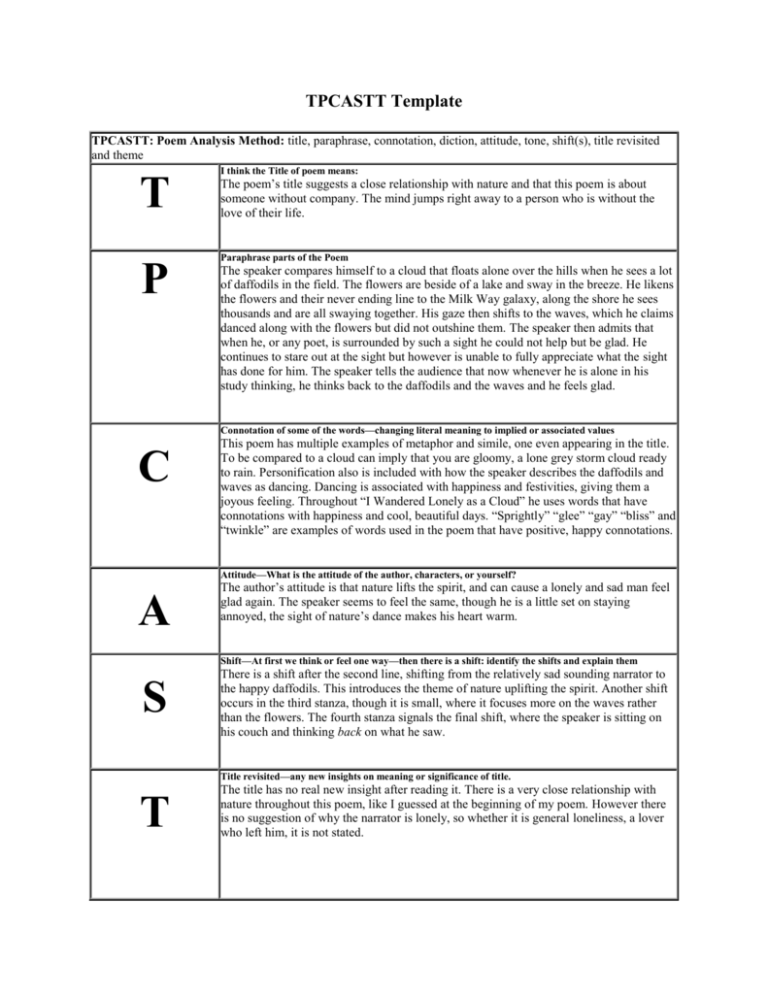
TPCASTT Template TPCASTT: Poem Analysis Method: title, paraphrase, connotation, diction, attitude, tone, shift(s), title revisited and theme T P I think the Title of poem means: The poem’s title suggests a close relationship with nature and that this poem is about someone without company. The mind jumps right away to a person who is without the love of their life. Paraphrase parts of the Poem The speaker compares himself to a cloud that floats alone over the hills when he sees a lot of daffodils in the field. The flowers are beside of a lake and sway in the breeze. He likens the flowers and their never ending line to the Milk Way galaxy, along the shore he sees thousands and are all swaying together. His gaze then shifts to the waves, which he claims danced along with the flowers but did not outshine them. The speaker then admits that when he, or any poet, is surrounded by such a sight he could not help but be glad. He continues to stare out at the sight but however is unable to fully appreciate what the sight has done for him. The speaker tells the audience that now whenever he is alone in his study thinking, he thinks back to the daffodils and the waves and he feels glad. Connotation of some of the words—changing literal meaning to implied or associated values C This poem has multiple examples of metaphor and simile, one even appearing in the title. To be compared to a cloud can imply that you are gloomy, a lone grey storm cloud ready to rain. Personification also is included with how the speaker describes the daffodils and waves as dancing. Dancing is associated with happiness and festivities, giving them a joyous feeling. Throughout “I Wandered Lonely as a Cloud” he uses words that have connotations with happiness and cool, beautiful days. “Sprightly” “glee” “gay” “bliss” and “twinkle” are examples of words used in the poem that have positive, happy connotations. Attitude—What is the attitude of the author, characters, or yourself? A The author’s attitude is that nature lifts the spirit, and can cause a lonely and sad man feel glad again. The speaker seems to feel the same, though he is a little set on staying annoyed, the sight of nature’s dance makes his heart warm. Shift—At first we think or feel one way—then there is a shift: identify the shifts and explain them S There is a shift after the second line, shifting from the relatively sad sounding narrator to the happy daffodils. This introduces the theme of nature uplifting the spirit. Another shift occurs in the third stanza, though it is small, where it focuses more on the waves rather than the flowers. The fourth stanza signals the final shift, where the speaker is sitting on his couch and thinking back on what he saw. Title revisited—any new insights on meaning or significance of title. T The title has no real new insight after reading it. There is a very close relationship with nature throughout this poem, like I guessed at the beginning of my poem. However there is no suggestion of why the narrator is lonely, so whether it is general loneliness, a lover who left him, it is not stated. Theme or Author’s Purpose T The theme of “I Wandered Lonely as a Cloud” is that nature heals a lonely and forgotten heart, and that the senses can provide wonderful and awe-inspiring sights which warm the soul long after it’s finished.

